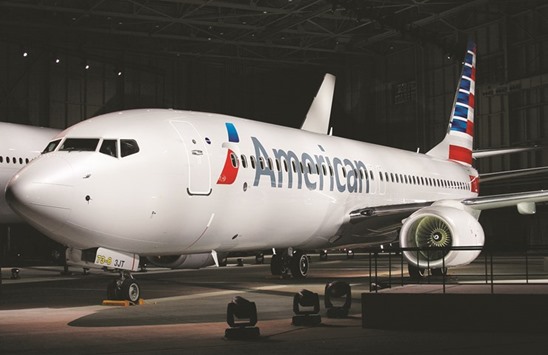US airlines are starting to regain some of their lost power over ticket prices, fuelling a post-election rally in the shares and ratifying a bet by billionaire Warren Buffett’s Berkshire Hathaway.
An improvement in average fares for each seat flown a mile prompted American Airlines Group to raise its forecast for two financial yardsticks in the last three months of the year, according to a statement on Friday by the world’s largest carrier. United Continental Holdings Inc also said its performance would be better than projected, citing “stronger than expected bookings” in the second half of the quarter.
US airlines are trying to stem year-over-year declines in passenger revenue for each seat flown a mile that started in 2015, as a glut of flights and seats prevented carriers from pushing through fare increases. Investors are piling in, fuelling a 19% gain in the Bloomberg US Airlines Index since the presidential election, triple the return of the S&P 500 Index.
Berkshire last month announced stakes in the four largest US airlines. The investment in American, United and Delta Air Lines as of September 30 has gained more than $440mn.
The stake in Southwest Airlines Co was accumulated subsequently and wasn’t listed in the regulatory filing.
Trends in average fares per mile “continue to exceed expectations as leisure and business travel appears to have picked up post the US presidential election,” Helane Becker, an analyst at Cowen & Co, said in a note to clients about American. She also increased her price target for the Fort Worth, Texas-based carrier as well as for United.
Part of Berkshire’s airline stakes were acquired by the Geico unit, according to a filing with insurance regulators. Geico’s holding in American was accumulated in the days through August 29 at an average price of about $35.50 a share.
In addition to the shopping spree by Buffett’s firm, optimism about US infrastructure investment and a potential tax overhaul under President-elect Donald Trump also may be fuelling investors’ interest in airlines, Becker said in an e-mail. active Jamie Baker, an analyst at JPMorgan Chase & Co, said he’s seen a “meaningful surge in new clients, with long-only biases,” in the last four weeks as investors look at buying airline stocks. “‘We’re just starting to ramp up on the space,’ is the unifying theme,” Baker said in a report.
Revenue for each seat flown a mile will fall by no more than 1% in the current quarter and may climb as much as 1% compared with a year earlier, American said in the statement.
The previous projection for the financial yardstick, known as unit revenue, called for a decline of 0.5% to 2.5%. Pretax profit excluding certain items will be 6% to 8% of sales, compared with an earlier forecast of 5% to 7%.
United, in a statement after the close of Thursday trading, said unit revenue would fall only 3% to 4% in the fourth quarter, compared with a previous estimate of as much as 6%.
Southwest, the largest US discount carrier, said occupancy of its planes rose to 85.1% in November, a record for that month.
“There’s definitely a lift in spirit,” Southwest chief executive officer Gary Kelly said in an interview at Bloomberg’s headquarters in New York on Thursday. “I don’t know that we can explain it, but we’ve seen a lift in our booking activity since the election.”

US airlines are trying to stem year-over-year declines in passenger revenue for each seat flown a mile that started in 2015, as a glut of flights and seats prevented carriers from pushing through fare increases
